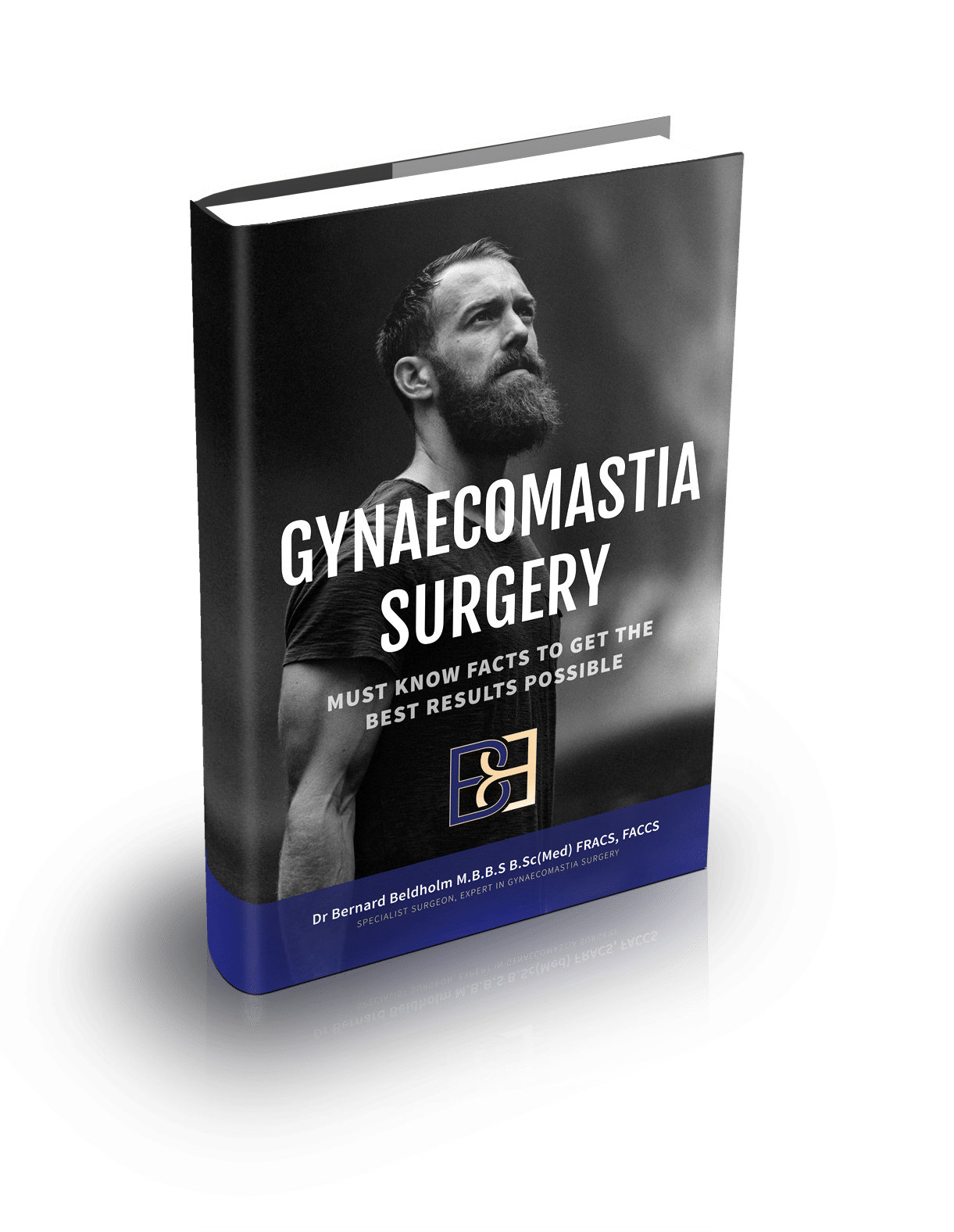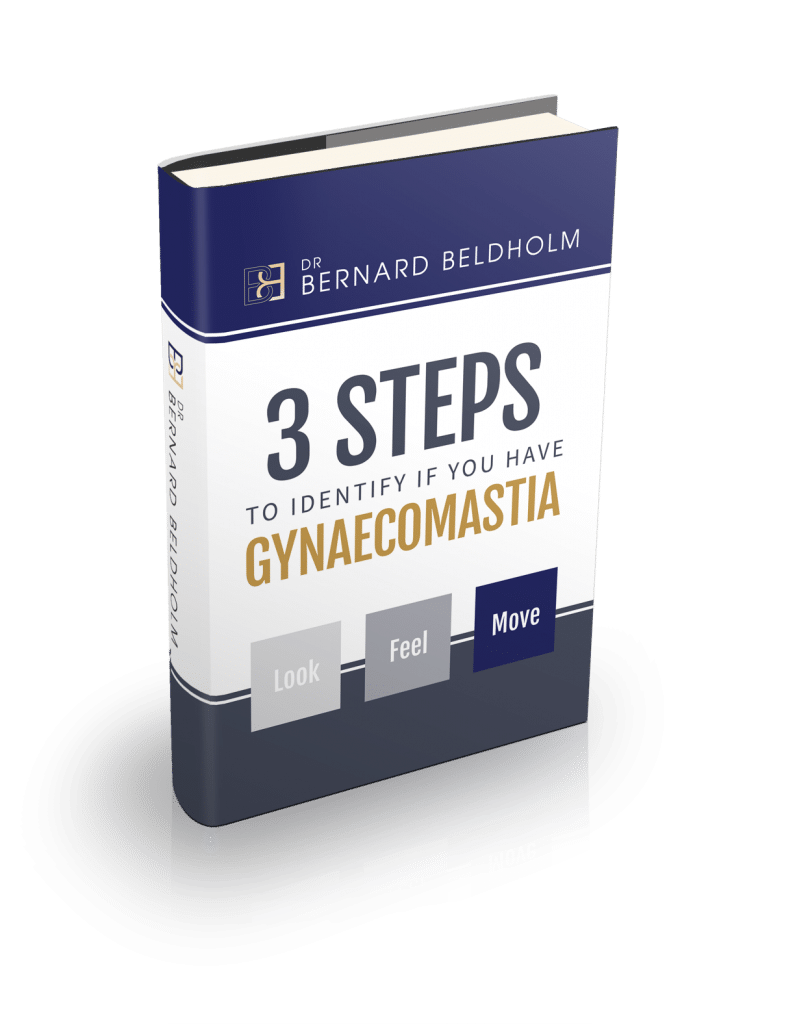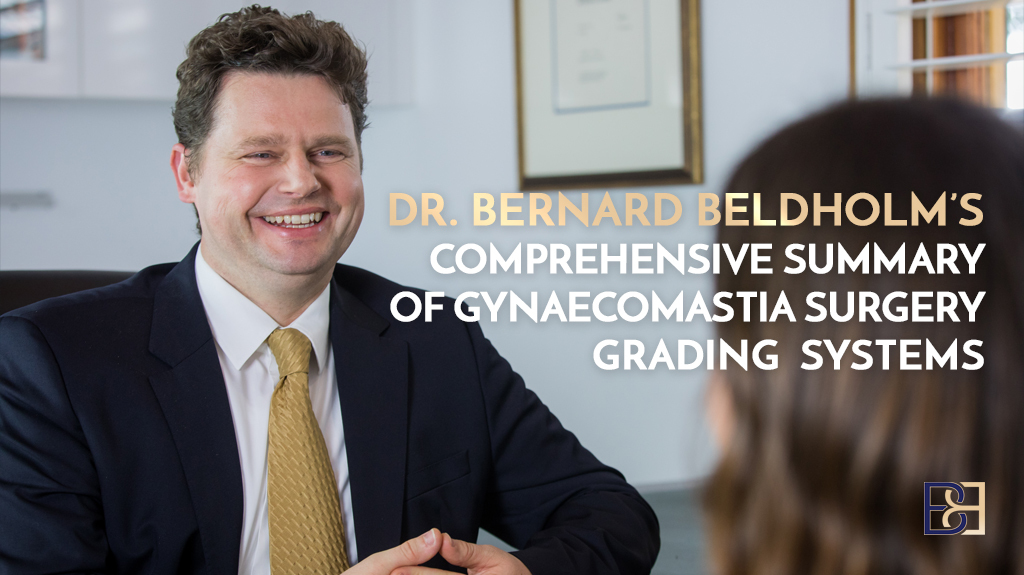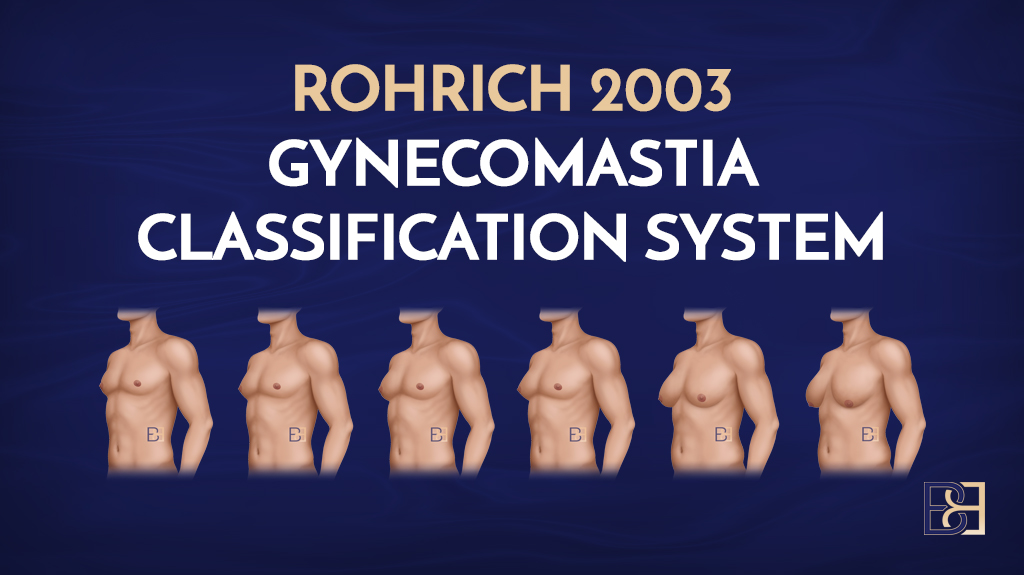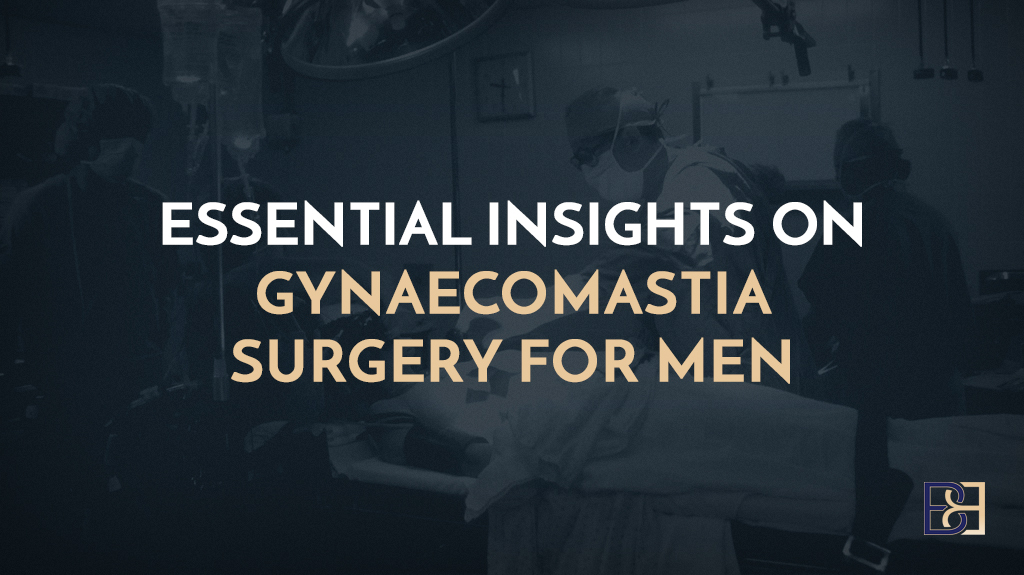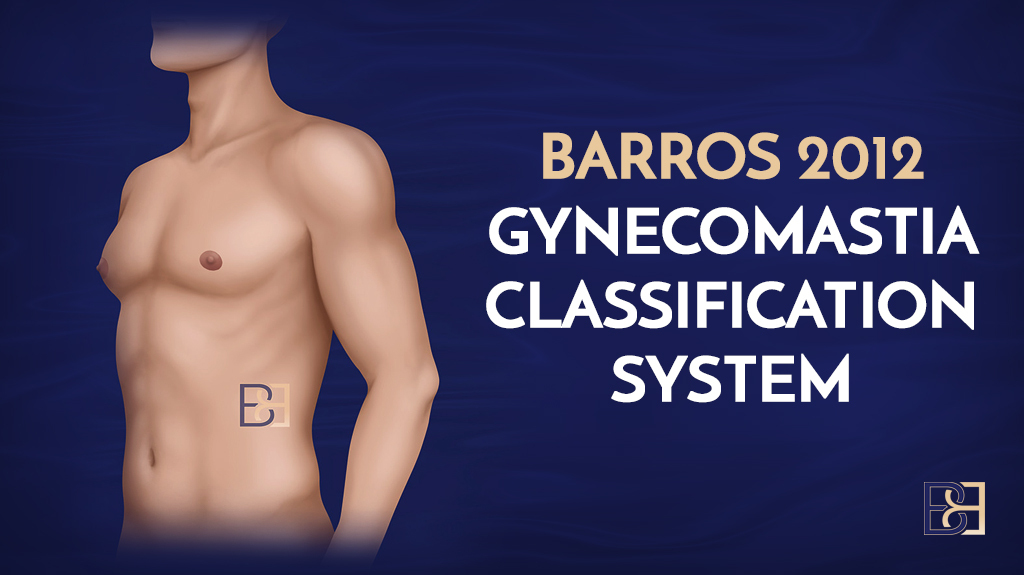Suction-Assisted Lipectomy (VASER Liposuction) gynaecomastia is an effective method for reducing Pseudo-gynaecomastia. In this article, we’ll cover how the procedure works, who it’s suitable for, and what you can expect during recovery.
Pseudo gynaecomastia is a medical condition characterised by the appearance of enlarged breasts in males, caused by an accumulation of fatty tissue rather than glandular tissue, which is the case in true gynaecomastia. This condition is often associated with overall weight gain and obesity. Unlike gynaecomastia, pseudo-gynaecomastia does not involve swelling of breast gland tissue, and it is generally managed through weight loss, lifestyle changes, and liposuction (Suction-assisted lipectomy). Proper diagnosis by a healthcare professional is essential to distinguish between pseudo-gynaecomastia and “real” gynaecomastia to ensure appropriate treatment.
Understanding Gynaecomastia
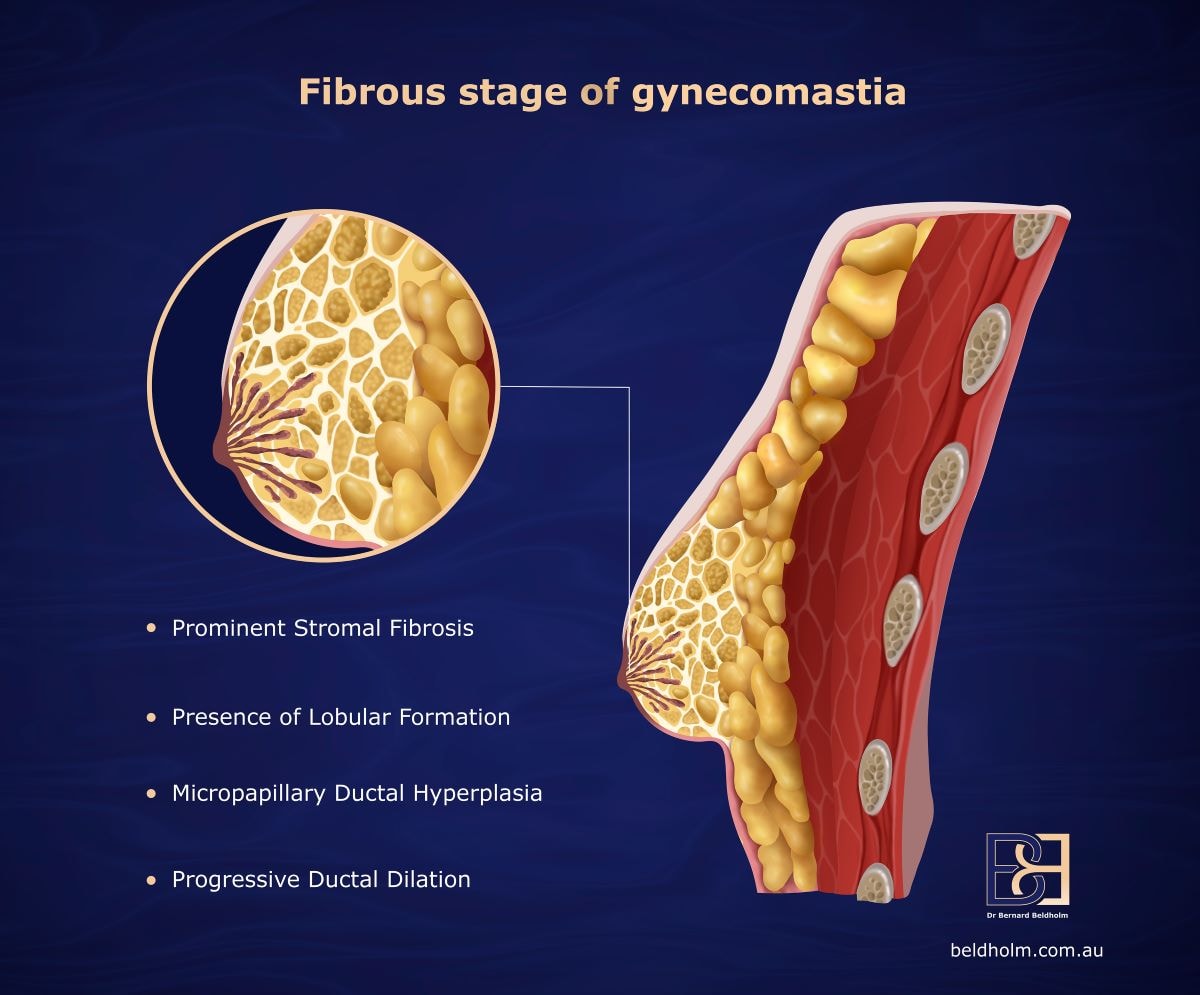
Book your appointment online now
Gynaecomastia is a condition characterised by the enlargement of male breast tissue. This condition primarily results from a hormonal imbalance between oestrogen and testosterone, leading to the growth of enlarged breast tissue in men. It can also be triggered by factors such as anabolic steroid use, certain medications, and underlying health conditions. Interestingly, in about 25% of cases, the cause of gynaecomastia remains unknown.
The condition is particularly prevalent in men over 50, with approximately two-thirds of this demographic being affected. Genetic conditions such as Klinefelter syndrome can also lead to the development of gynaecomastia. Symptoms typically include swollen breast tissue, lumps in the breasts, and excess fat. Distinguishing between true gynaecomastia (excess glandular tissue) and pseudo-gynaecomastia (excess fatty tissue) is essential, especially when considering cases of excess breast tissue.
Determining the underlying causes and types of gynaecomastia is key to finding the appropriate treatment. Whether the condition is due to hormonal imbalances, medication, or unknown reasons, identifying the specific type of tissue involved helps in planning the most effective intervention.
The Role of Suction-Assisted Lipectomy (VASER Liposuction) in Treating Pseudo-Gynaecomastia
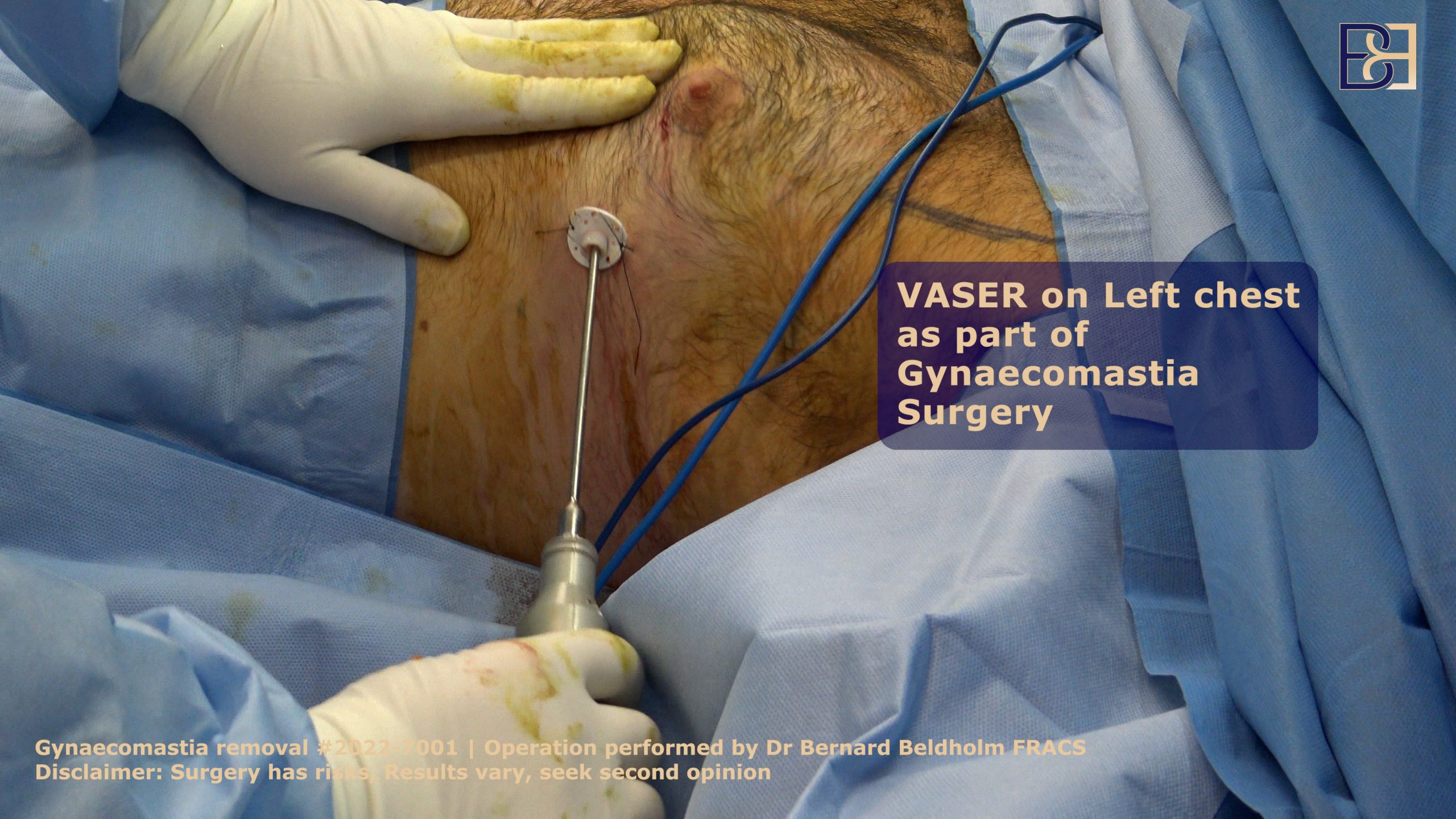
Suction-Assisted Lipectomy (VASER Liposuction) is a leading treatment for pseudo-gynaecomastia, effectively removing excess fatty tissue from the male chest area. This procedure is particularly suitable for patients whose primary issue is excess fat rather than glandular tissue. However, for those with a combination of excess fat and glandular tissue, Suction-Assisted Lipectomy (VASER Liposuction) can be combined with excision techniques to remove excess breast tissue and achieve optimal results.
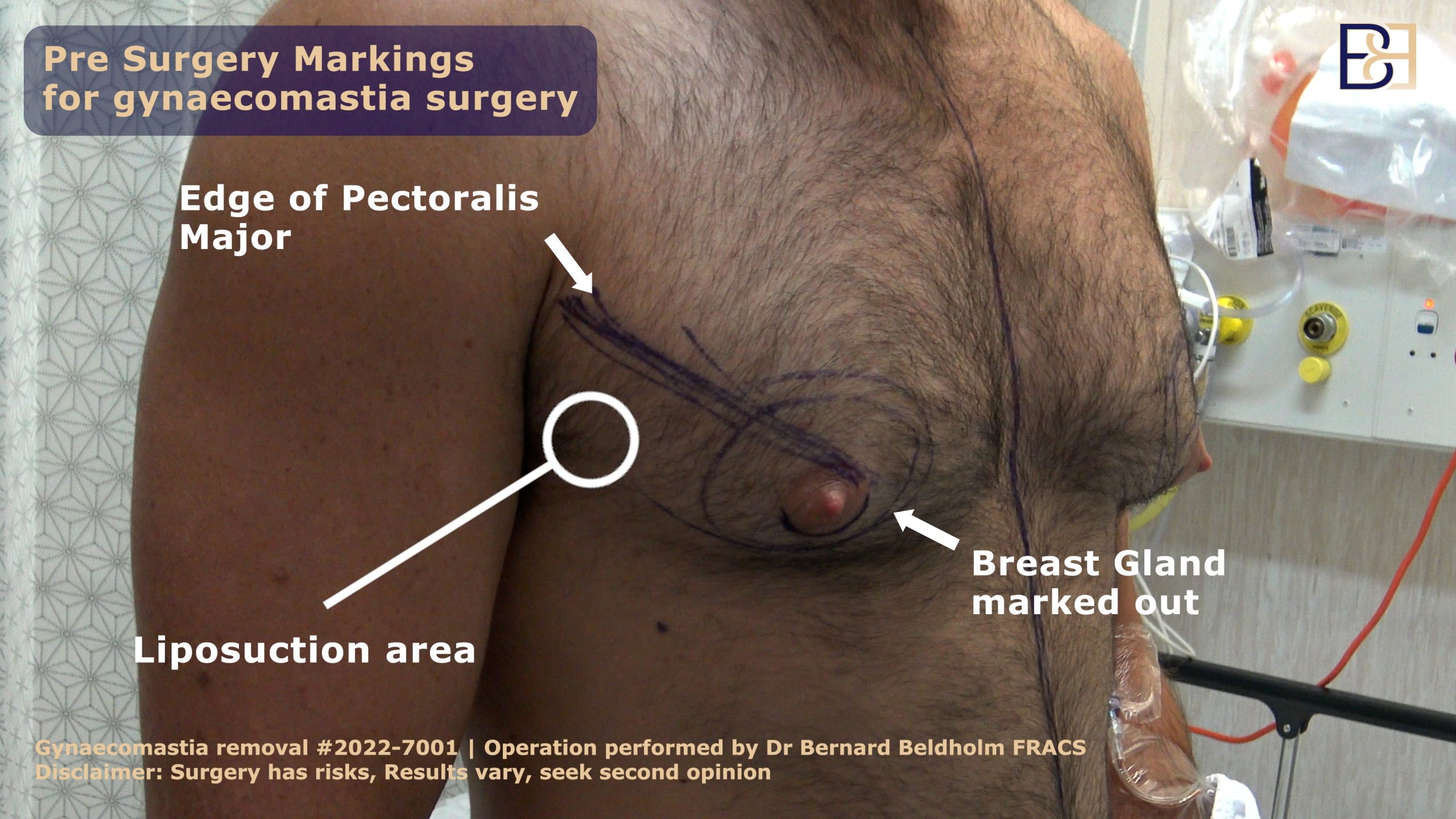
During the Suction-Assisted Lipectomy (VASER Liposuction) procedure, small incisions are made to insert a cannula, which is then used to break up and remove fat deposits. This method is beneficial for reducing the size of enlarged male breasts and elevating the overall contour of the chest. Suction-Assisted Lipectomy (VASER Liposuction) techniques have evolved significantly, with advanced options like Suction-Assisted Lipectomy (VASER Liposuction) offering precision and effectiveness.
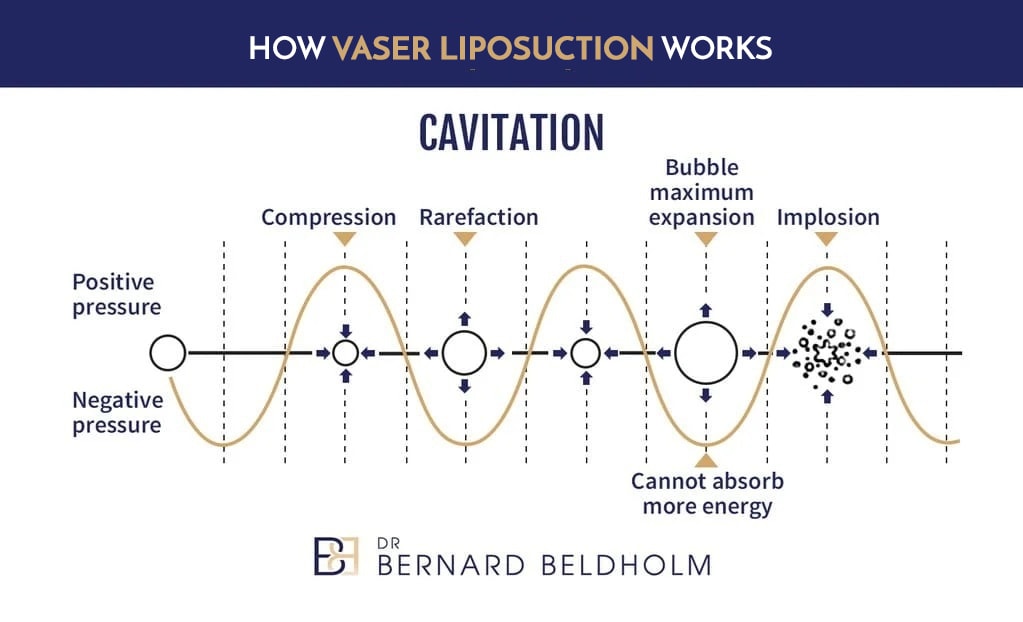
A comprehensive approach to treating severe gynaecomastia often combines liposuction with other surgical options, such as gland excision. This dual-method strategy treats both fatty and glandular tissues, leading to long-lasting results.
Please refer to my detailed article on this topic: “Combining Subcutaneous Mastectomy with VASER Liposuction for Gynaecomastia BB Grade 2a, 3a & 4a: Effective Male Breast Reduction Treatment”
Suction-Assisted Lipectomy (VASER Liposuction) vs. Standard Suction-Assisted Lipectomy
When considering body contouring options, it’s important to understand the difference between Suction-Assisted Lipectomy (VASER Liposuction) vs. Standard Suction-Assisted Lipectomy. Standard liposuction involves the use of a cannula to physically break down and suction fat from targeted areas of the body, often requiring significant downtime and sometimes resulting in uneven result. On the other hand, VASER liposuction uses ultrasound technology to liquefy fat cells before they are removed. This technique tends to preserve surrounding tissues better, leading to potentially smoother results and reduced recovery time. Additionally, Suction-Assisted Lipectomy (VASER Liposuction) can be more effective at treating fibrous areas of the body as compared to traditional methods.
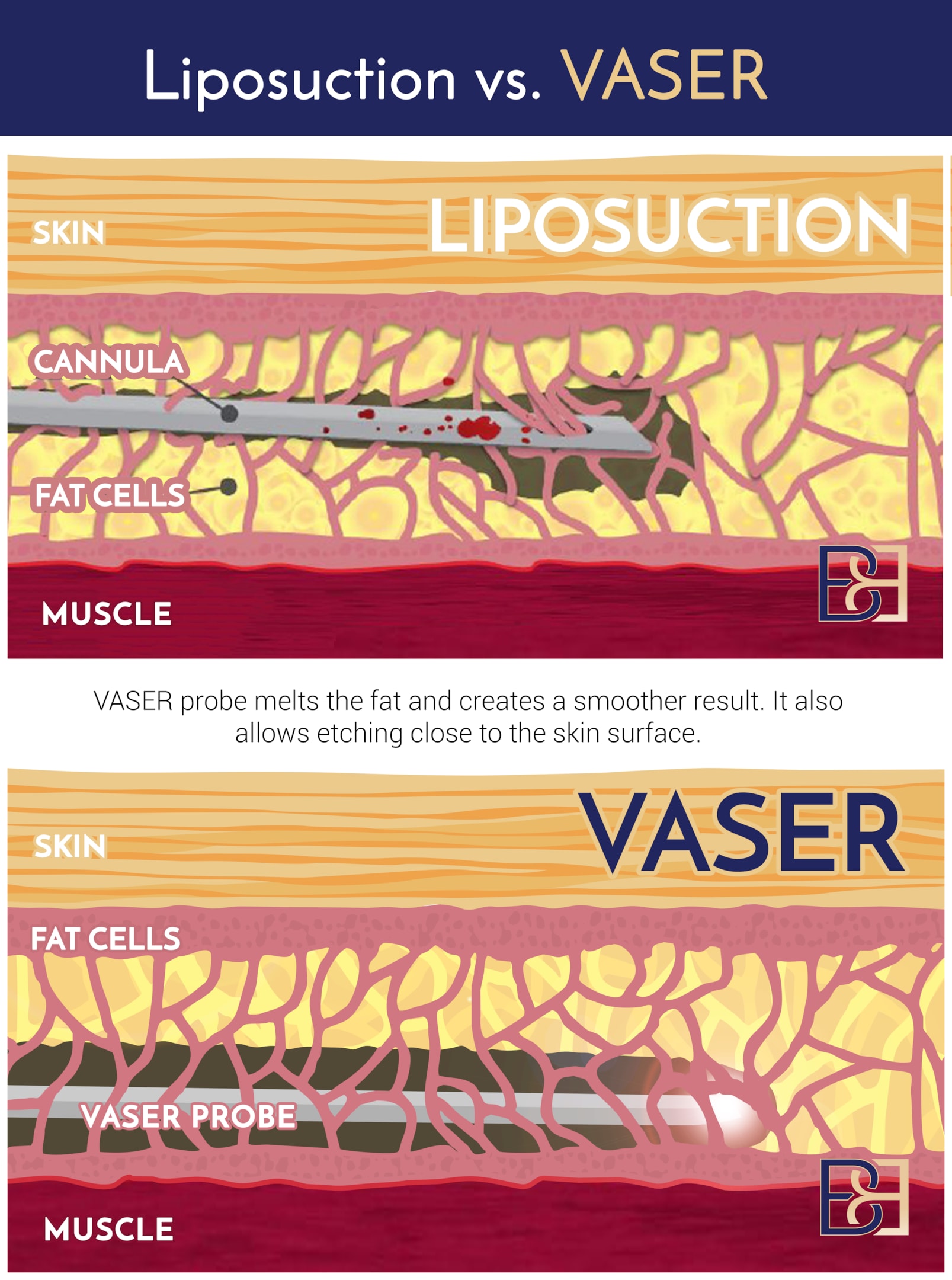
Who Is a Good Candidate for Suction-Assisted Lipectomy (VASER Liposuction)?
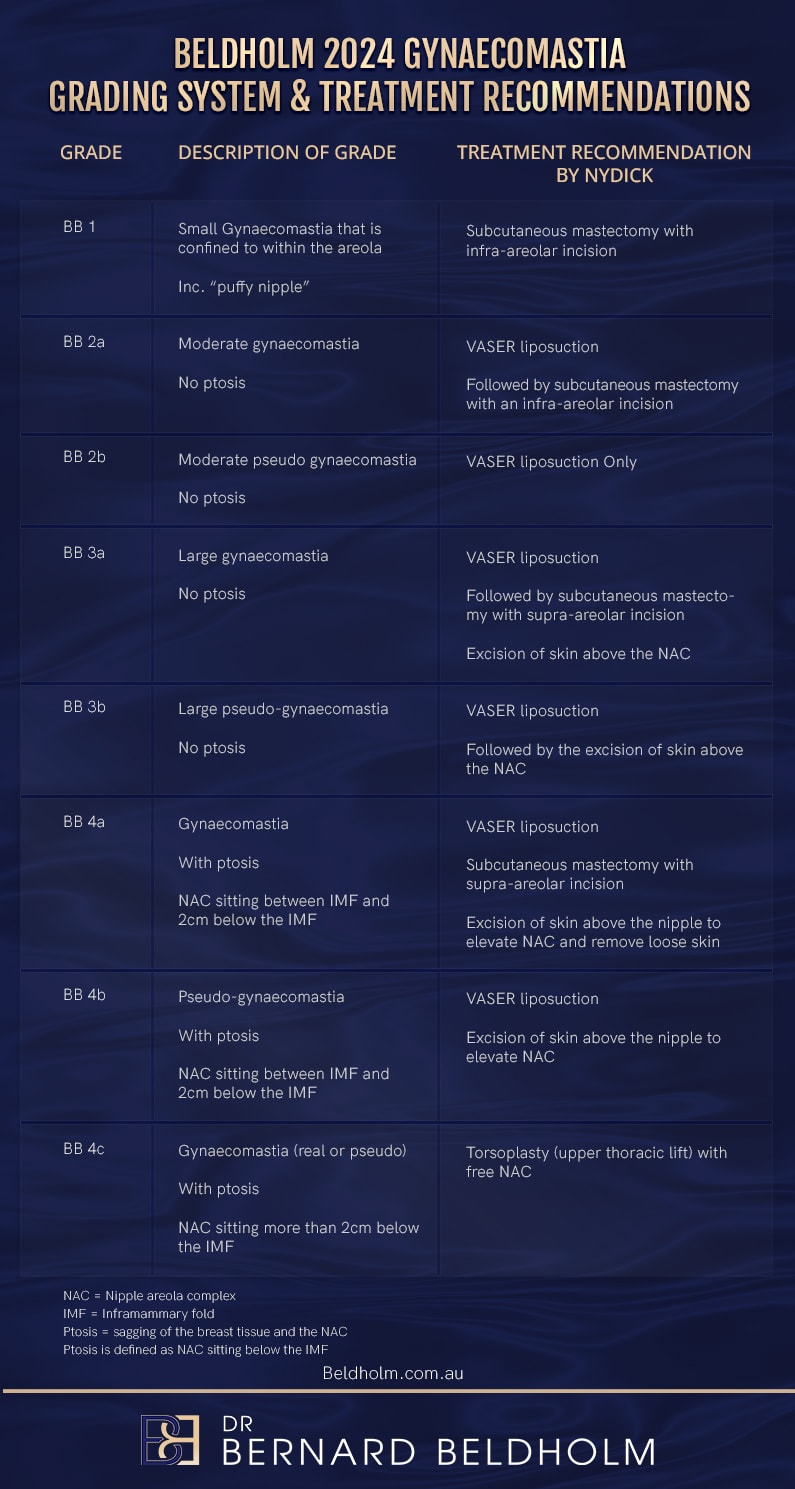
Gynaecomastia is a suitable candidate for Suction-Assisted Lipectomy (whether VASER or standard). Liposuction will not remove the solid gland in patients with “real” gynaecomastia; it is only suitable for those with pseudo gynaecomastia. Therefore, it is crucial for the surgeon to accurately distinguish between these conditions in order to provide the appropriate treatment. Sometimes, it can be challenging to differentiate between these two diagnoses. In such cases, the best course of action is to perform an ultrasound on the chest.

VASER without subcutaneous mastectomy is indicated in grade 2b, 3b & 4b of Dr Beldholm 2024 gynaecomastia grading system.
BB grade 2b gynaecomastia is defined as:
- Moderate pseudo-gynaecomastia
- No ptosis
- Treatment recommended for this grade is Suction-Assisted Lipectomy (VASER Liposuction) Only
BB grade 3b gynaecomastia is defined as:
- Large pseudo-gynaecomastia
- No ptosis
- The treatment recommended for this grade is Suction-Assisted Lipectomy (VASER Liposuction) followed by the excision of skin above the NAC
BB grade 4b gynaecomastia is defined as:
- Pseudo-gynaecomastia
- With ptosis (NAC sitting between IMF and up to 2cm below the IMF)
- The treatment recommended for this grade is Suction-Assisted Lipectomy (VASER Liposuction) followed by the excision of skin above the NAC
Ideal candidates are usually in good health, physically active, and at or near their ideal body weight. Reaching an ideal weight before surgery can significantly improve outcomes. Additionally, patients with good skin elasticity tend to experience the best results from Suction-Assisted Lipectomy.
It is also advisable for candidates to cease smoking before undergoing the surgical procedure, as smoking can impede the healing process. Prior medical tests may be necessary to assess the suitability for surgery.
In milder cases of gynaecomastia with minimal excess fatty tissue and good skin elasticity, Suction-Assisted Lipectomy alone may suffice without glandular excision.
What to Expect During the Suction-Assisted Lipectomy (VASER Liposuction) Procedure
Knowing what to expect during the Suction-Assisted Lipectomy (VASER Liposuction) procedure can help alleviate pre-surgery anxiety. The process typically begins with the administration of either local or general anaesthesia, depending on the extent of the surgery and the patient’s preference. Small incisions are made strategically to minimise visible scarring.
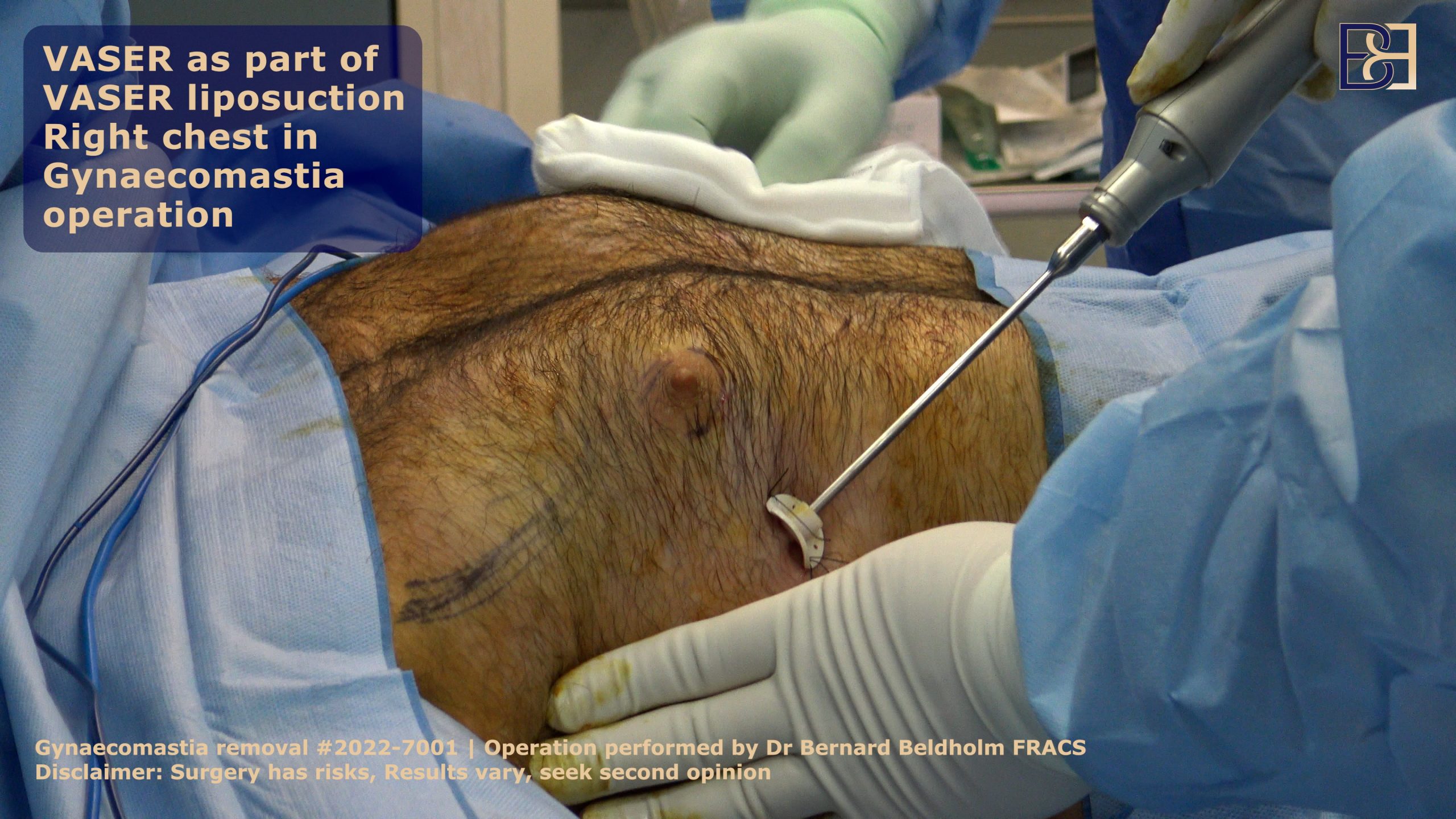
A cannula is inserted through the incisions to emulsify and remove excess fat. The surgeon moves the cannula back and forth to loosen the fat, which is then suctioned out using vacuum pressure. The entire procedure usually lasts around 1 hour, and patients can expect to go home the same day, barring any complications.
Following the surgeon’s post-surgery care instructions is crucial. This typically includes managing pain with prescribed medications and using cold compresses to reduce swelling and discomfort. Wearing compression garments supports the healing process and minimises swelling.
Recovery After Suction-Assisted Lipectomy Gynaecomastia Surgery

The recovery period after Suction-Assisted Lipectomy gynaecomastia surgery is critical and can significantly impact final results. Patients are generally required to wear compression garments to minimise swelling and support the newly contoured chest area. These garments should be worn as directed by the surgeon to ensure proper healing.
Effective pain management is vital for smooth recovery. This can be achieved through prescribed medications and the use of cold compresses to alleviate discomfort. It’s important to avoid heavy lifting and strenuous activities for at least two weeks post-surgery to allow the body to heal properly.
Follow-up appointments are essential for monitoring recovery and avoiding complications like infection or poor wound healing. They allow the surgeon to assess progress and adjust the recovery plan as needed.
Potential Risks and Complications
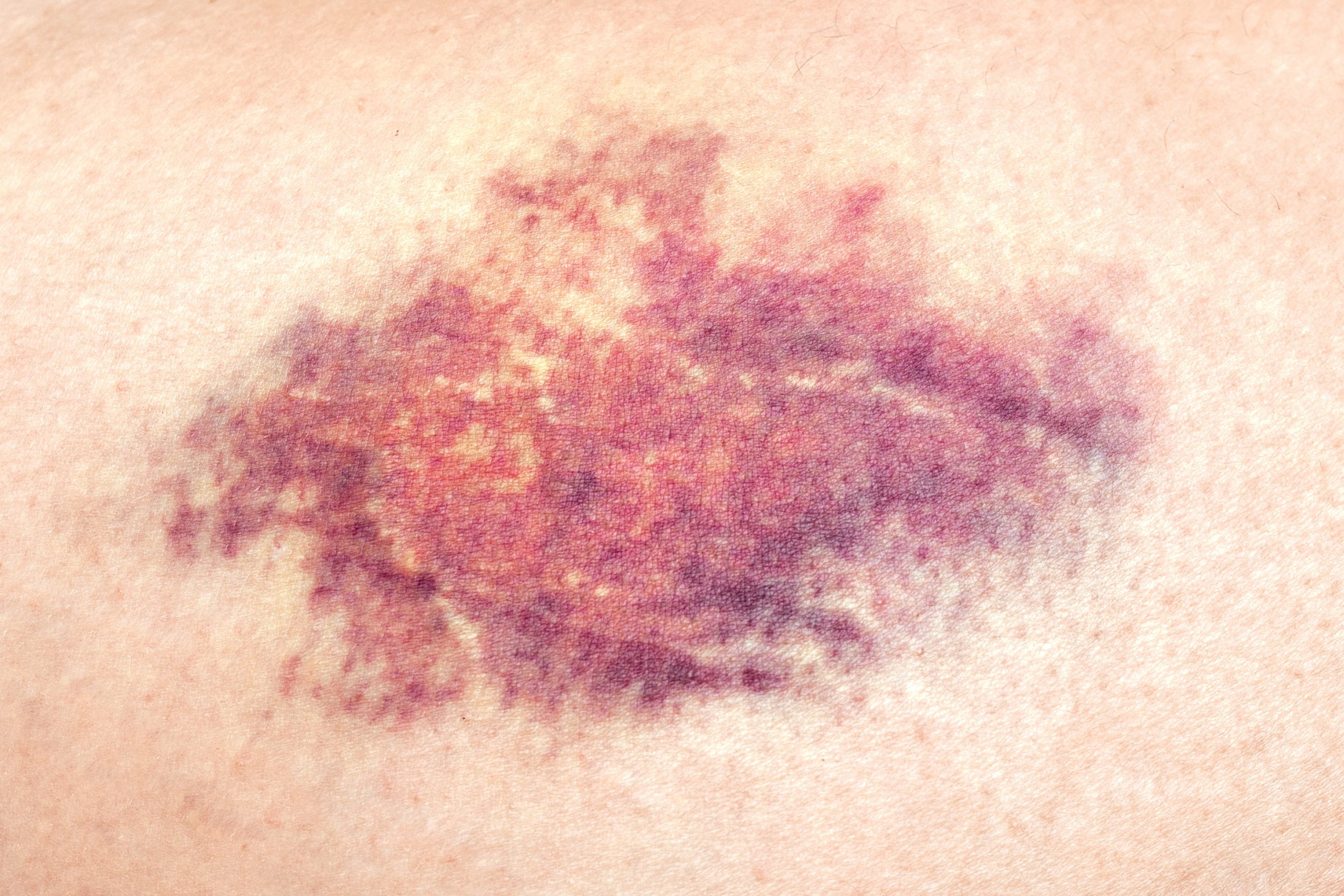
Like any surgical intervention, Suction-Assisted Lipectomy gynaecomastia surgery carries potential risks and complications. Common risks include bruising, bleeding, and fluid collections. In some cases, patients may develop haematomas, which are collections of blood under the skin that can cause discomfort and require drainage.
More serious but rare complications include deep vein thrombosis (DVT), leading to blood clots. It’s essential to follow the prescribed post-operative care instructions to minimise these risks. Patients should also be aware of the possibility of asymmetry or irregularities in breast contour and shape, which may require additional corrective procedures.
Long-Term Results and Maintenance
Long-term results from Suction-Assisted Lipectomy gynaecomastia surgery require a commitment to a healthy lifestyle. Maintaining a stable weight is essential to prevent the return of fat deposits in the chest area.
Adhering to the surgeon’s aftercare instructions is vital for preserving surgery results. This includes attending follow-up appointments to monitor recovery. The removed skin, tissue, and fat are permanently gone, but the longevity of the results depends on lifestyle choices.
Patients should avoid substances that cause hormonal imbalances, like anabolic steroids and certain medications. Making healthy lifestyle choices, staying active, and maintaining a stable weight can help ensure that the results of the surgery are long-lasting.
Summary
Suction-Assisted Lipectomy gynaecomastia surgery offers a promising solution for men struggling with enlarged breasts. From understanding the condition and the role of Suction-Assisted Lipectomy to exploring advanced techniques like VASER, this guide has covered all critical aspects. By choosing the right treatment and following post-operative care instructions, patients can achieve long-lasting results and enjoy a renewed sense of well-being.

